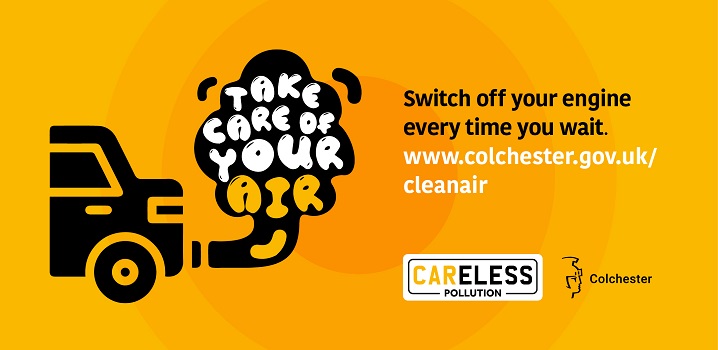CAReless Pollution campaign guidance for volunteers

COVID-19 guidance
It is important that all our volunteers comply with government guidelines and the Council’s own requirements in order to protect your own safety, and that of local people.The requirements are that:
- volunteers must maintain social distancing at all times and remain 2 metres away from those you are talking to
- volunteers must not enter any houses whilst distributing campaign materials
- if volunteers are having a conversation with a motorist who is sitting in their car, you should not lean into or through the car window
- volunteers cannot hand out materials – local people must choose to pick them up for themselves, for example from a clipboard
- volunteers should have hand sanitiser available on their person and ensure that hands are sanitised as appropriate
Approaching members of the public
Bear in mind that some people simply won’t want to listen or change their behaviour but by being friendly and positive you’ll find that lots of people do. Don’t push people if they seem uninterested. Ultimately your safety is paramount so if you feel that someone is being aggressive then please walk away.Here is an example dialogue if you approach someone with their engine on.
- “Hello – there is a new campaign in Colchester asking people to switch off the engine while you wait, to improve your own health and local air quality.”
- You might then want to say, “Did you know that air pollution inside a stationary car with the engine running is up to seven times higher than the air outside.”
- We hope at this point that they switch off their engine. You should offer them a postcard (if you have one) from your clipboard to take away
- If they give an excuse for idling then our myths and facts in this document should help you answer
- If they don’t switch off their engine then end the conversation politely and walk away
- “Hello - we are asking drivers who have stopped to switch off their engines. Pleased to see that you are already doing this, keep up the good work!”
- Offer them a postcard (if you have one) from your clipboard
Top tips to remember
- Always stand on the kerb side and away from moving traffic. Never go on the road
- Cross all roads safely and stick to normal pedestrian safety rules
- Always work as part of a team, never approach drivers on your own
- Be non-confrontational at all times. Approach vehicles tentatively, speak in a calm tone of voice and be polite. Don’t knock on windows, but wave at drivers. Don’t write down any registration details and or be authoritarian. Nobody likes being told what to do – always ask rather than instruct
- Walk away if a driver doesn’t want to engage with you
- Be aware that some drivers may act aggressively. If they seem angry or aggressive then don’t carry on trying to talk to them and walk away
- Please be aware of your own exposure to air pollution. Take any necessary precautions to make sure you don’t put yourself in a vulnerable situation
Myths and facts to help you answer questions
Here are some common myths about leaving an engine running while you’re stationary, which will help you to respond to certain questions. If you are unsure about how to answer a question then please ask them to email it to clean.air@colchester.gov.uk where someone will be able to respond.Fiction: If I turn the engine on and off it uses more fuel
Fact: No. Sitting with the engine running for 10 seconds uses more fuel than switching off and on.
Fiction: If I switch my car on and off it is bad for the engine
Fact: Modern cars can be switched on and off repeatedly without unnecessary wear on the engine, loss of performance or damage to the battery.
Fiction: I need to leave the engine running to keep the heater on
Fact: Turning off the engine but keeping the ignition on with the fan blowing will provide warm air for up to 30 minutes.
Fiction: Sitting in my car with the engine running doesn't directly damage my health
Fact: Air pollution INSIDE a stationary car with the engine running is up to seven times higher than the air pollution outside the car, so drivers and their passengers are unnecessarily breathing in poor quality air. You can take responsibility for your own health by switching off your engine every time you wait. The main source of Colchester’s air pollution is exhaust fumes. Air pollution is recognised as a contributing factor in the development of lung conditions, heart disease and cancer. It also reduces life expectancy and is linked to 1 in 20 deaths in Colchester.
Page last reviewed: 23 October 2020

